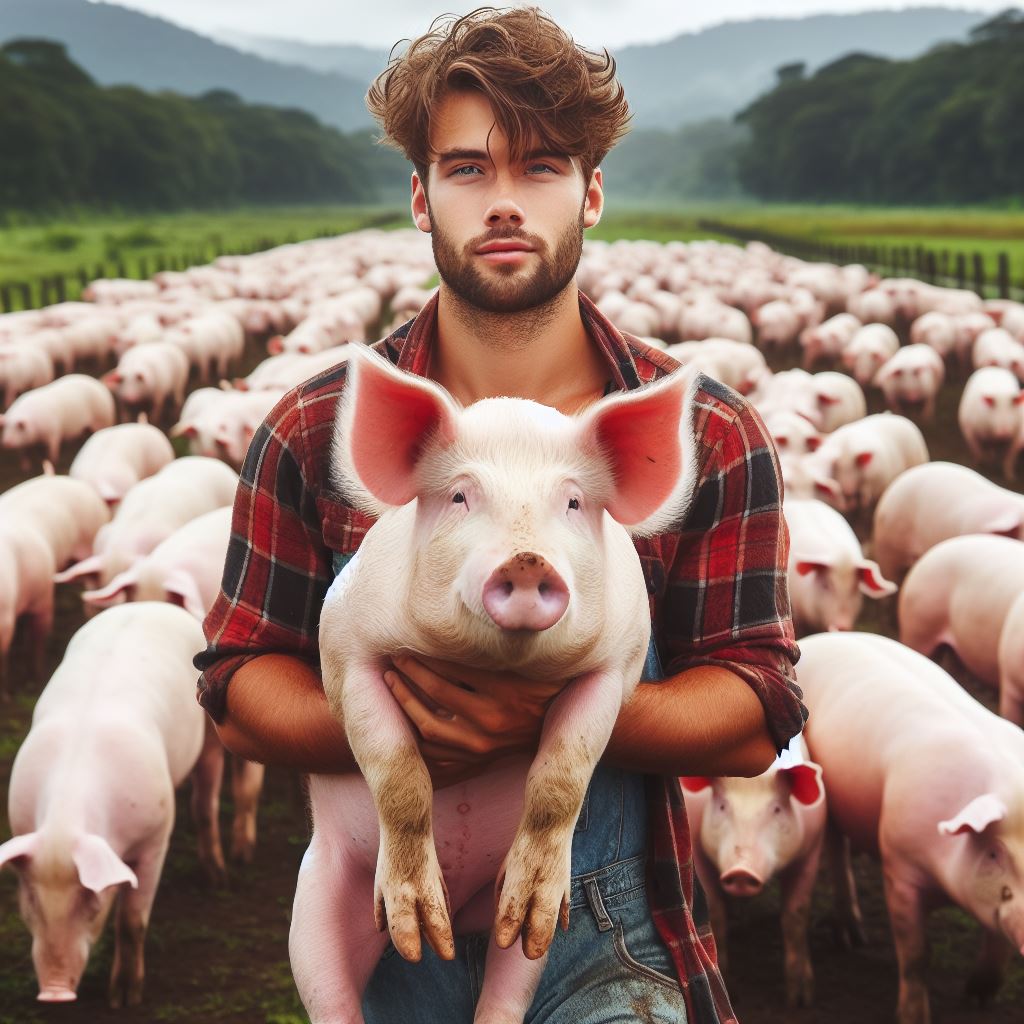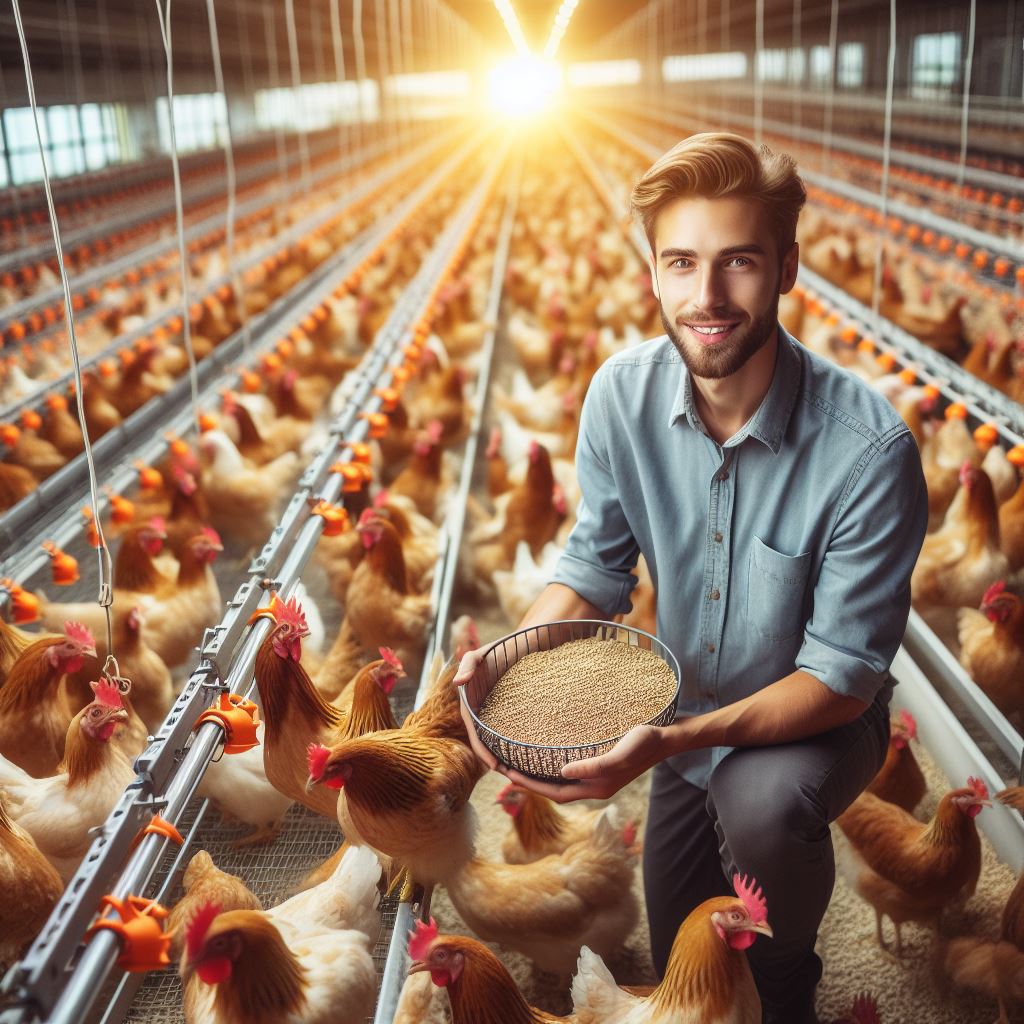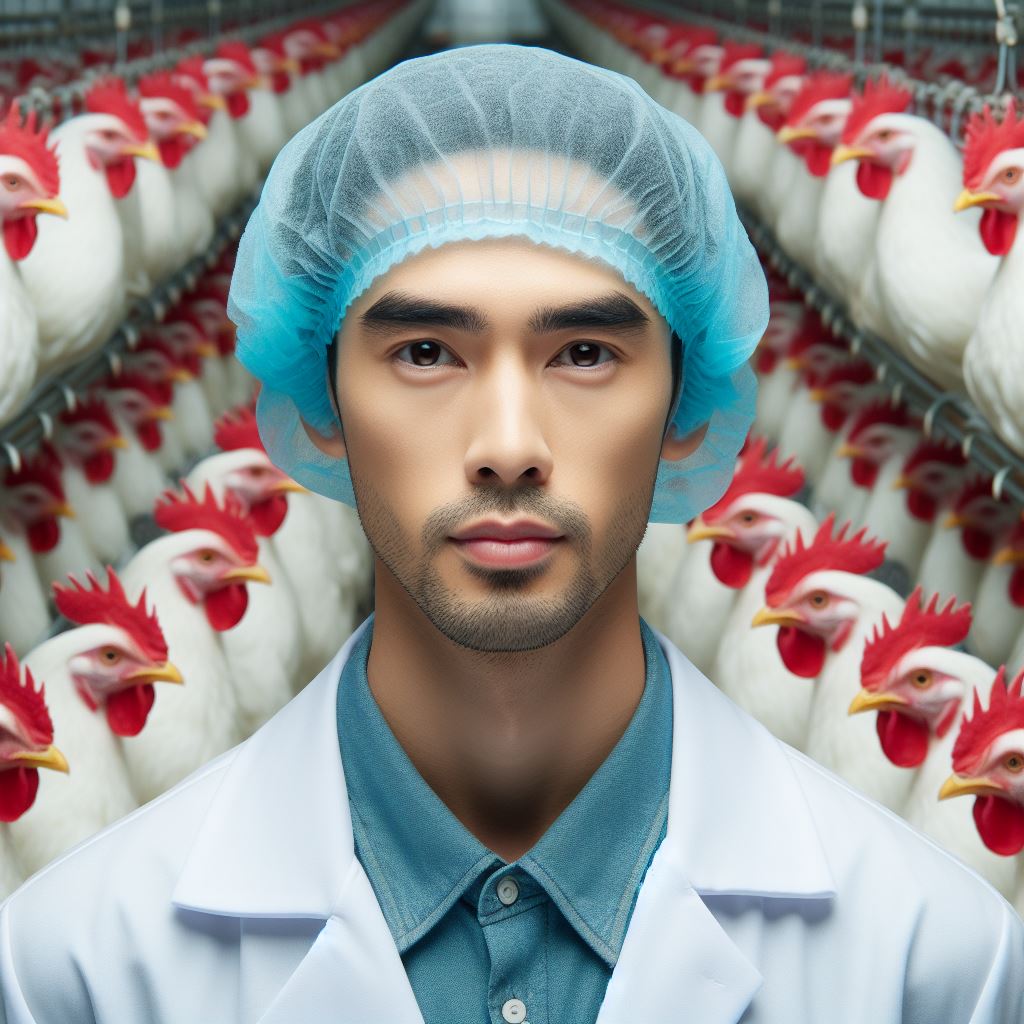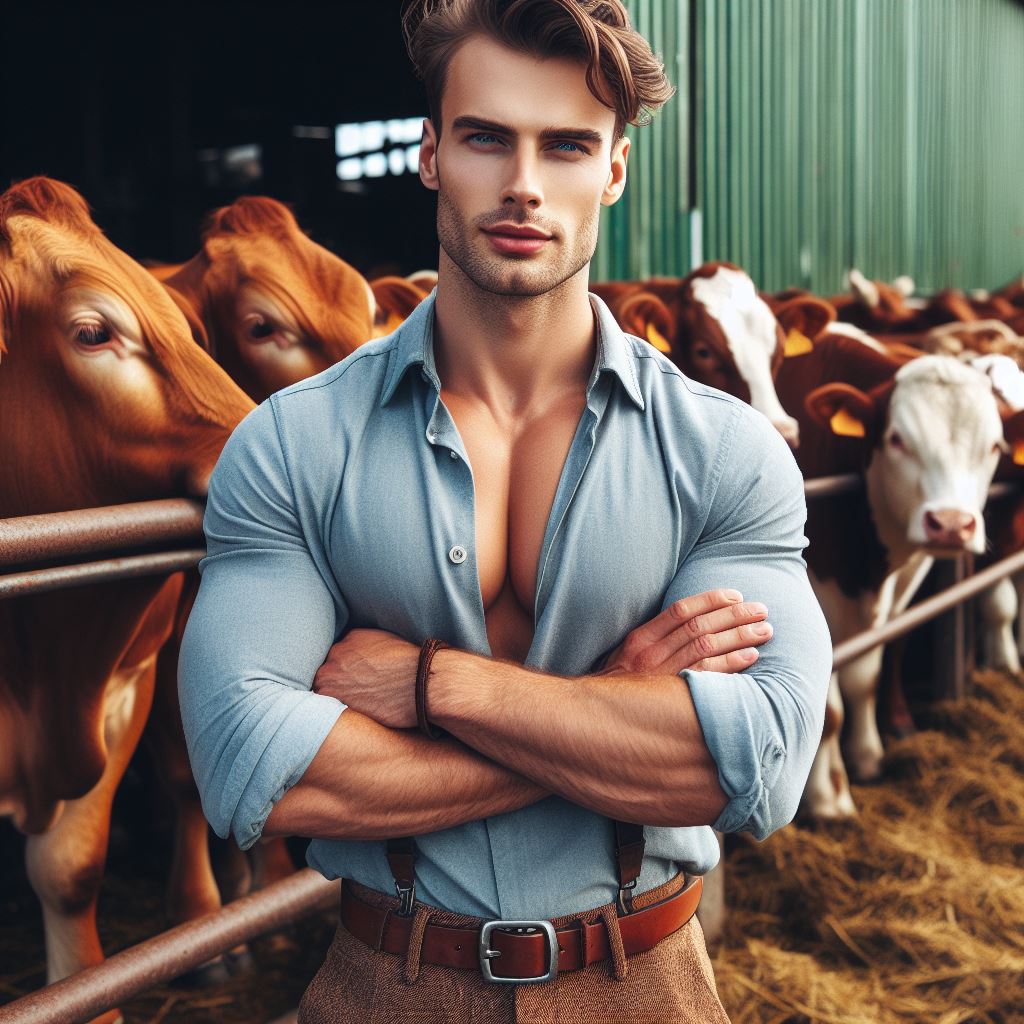Introduction
Sustainable poultry farming practices
Sustainable poultry farming practices play a crucial role in meeting the demands of the poultry industry while minimizing environmental impact.
These include organic feed usage, rotational grazing, and efficient waste management. Employing energy-efficient systems and reducing water consumption also play key roles.
By integrating such practices, poultry farming becomes environmentally friendly, socially responsible, and economically sustainable, fostering a balanced and resilient poultry industry.
The importance of sustainable practices in the poultry industry
These practices prioritize long-term viability, animal welfare, and resource conservation.
Sustainable practices in the poultry industry are crucial for environmental stewardship and long-term viability.
Emphasizing resource efficiency, waste reduction, and ethical treatment of animals, these practices minimize ecological impact, enhance biodiversity, and ensure a resilient and responsible poultry sector.
Sustainable methods safeguard both the industry’s economic viability and the broader environmental health.
The goal of the blog post
This blog post aims to explore the significance of sustainable practices in the poultry industry and highlight the key goals of adopting such practices.
Benefits of Sustainable Poultry Farming
The environmental benefits of sustainable poultry farming
Sustainable poultry farming practices offer numerous environmental benefits.
Here are some of the key advantages:
- Reduced Carbon Footprint: Sustainable poultry farming minimizes emissions, utilizing efficient manure management and renewable energy sources.
- Preservation of Natural Resources: Farmers adopt sustainable practices, like efficient irrigation and rainwater harvesting, ensuring responsible use of natural resources and preserving freshwater for ecological balance.
- Biodiversity Conservation:Sustainable poultry farms conserve biodiversity, providing habitats, supporting wildlife, and preventing species loss.
- Soil Health Improvement: Sustainable farming methods focus on soil health management. By adopting practices such as crop rotation, cover cropping, and organic fertilization, farmers enhance soil fertility and structure. This leads to improved water retention, reduced erosion, and increased biological activity in the soil.
- Reduced Water Pollution: Sustainable poultry farming minimizes water pollution. Biogas digesters manage waste, preventing toxins and pathogens from contaminating water bodies
- Decreased Dependence on Chemicals: Sustainable farming reduces the reliance on chemical inputs. By adopting integrated pest management techniques and organic farming practices, farmers can reduce the use of synthetic pesticides and fertilizers. This is beneficial for both the environment and the health of consumers.
- Energy Efficiency: Sustainable poultry farming aims to optimize energy use. The implementation of energy-efficient technologies, such as LED lighting and automated ventilation systems, helps reduce energy consumption on farms. This not only saves costs but also reduces the overall environmental impact.
- Enhanced Animal Welfare: Ethical and sustainable poultry farming prioritizes bird well-being through spacious housing, outdoor access, and proper nutrition, fostering industry trust and compliance.
- Improved Air Quality:Sustainable practices enhance air quality, utilizing efficient ventilation and low-emission methods to minimize harmful gas and odor release, benefiting communities and the environment
- Economic Viability: Sustainable poultry farming can provide economic benefits. By reducing input costs through efficient resource management and attracting environmentally-conscious consumers, farms can boost profitability and contribute to rural development.
Sustainable poultry practices reduce carbon footprint, preserve resources, conserve biodiversity, and enhance soil and water quality, fostering a resilient food system.
Methods for Sustainable Poultry Farming
When it comes to poultry farming, sustainability is a key factor in ensuring the long-term viability and success of the industry.
Farmers all over the world are adopting various practices to make their operations more sustainable.
Here are some of the sustainable methods used in poultry farming:
Organic feed and pasture-based systems
One of the most important aspects of sustainable poultry farming is the use of organic feed and pasture-based systems.
Transform Your Agribusiness
Unlock your farm's potential with expert advice tailored to your needs. Get actionable steps that drive real results.
Get StartedThis means that the chickens are given feed that is free of synthetic pesticides, herbicides, antibiotics, and genetically modified organisms (GMOs).
Additionally, they are allowed to roam freely in pasture-based systems, which promotes their natural behaviors and reduces stress.
Efficient waste management and composting
Waste management is a critical aspect of sustainability in poultry farming.
Proper handling and management of chicken waste can greatly reduce the environmental impact.
Farmers implement efficient waste management systems, such as using composting methods, to convert waste into valuable organic fertilizer.
This helps minimize pollution and nutrient runoff into water bodies.
Utilization of renewable energy sources
Poultry farms consume a significant amount of energy, and using renewable energy sources can greatly reduce the carbon footprint.
Farmers are increasingly adopting solar panels, wind turbines, and biomass power plants to generate clean and sustainable energy.
This not only helps in reducing greenhouse gas emissions but also brings cost savings in the long run.
Implementation of proper animal welfare practices
In sustainable poultry farming, prioritizing animal welfare is vital.
Farmers ensure that their chickens have proper living conditions, access to clean water, and adequate space to move around.
They also avoid practices like overcrowding and debeaking, which cause stress and discomfort.
Such measures not only promote the well-being of the chickens but also result in healthier birds and better-quality meat.
Adoption of integrated pest management techniques
Pests can pose a significant threat to poultry farms, and using chemical pesticides is not aligned with sustainable practices.
Instead, farmers adopt integrated pest management (IPM) techniques that involve a combination of biological, cultural, and mechanical controls.
This includes using beneficial insects, maintaining proper sanitation, and employing physical barriers.
IPM minimizes the reliance on harmful chemicals and reduces the environmental impact.
By implementing these sustainable practices, poultry farmers contribute to the overall well-being of the environment, animal welfare, and public health.
These methods not only ensure the long-term viability of the industry but also provide consumers with high-quality, ethically produced poultry products.
Read: Poultry Farming: Dealing with Predators
Economic Advantages of Sustainable Poultry Farming
When it comes to sustainable poultry farming practices, the benefits go beyond just environmental considerations.
In fact, there are several economic advantages that come along with embracing sustainability.
Lower Operating Costs
- Sustainable poultry farming practices often prioritize resource management and efficiency.
- By reducing waste and optimizing resource use, farmers can effectively lower their operating costs.
- From energy-saving measures to efficient feed utilization, sustainable practices help cut expenses.
Increasing Market Demand for Sustainable Poultry Products
- Consumers are becoming more conscious about the origin and production methods of the food they consume.
- As a result, there is a growing market demand for poultry products that are produced sustainably.
- Farmers who adopt sustainable practices can tap into this expanding market and cater to eco-conscious consumers.
Access to Premium Markets and Higher Prices
- Sustainable poultry farming practices often lead to improved product quality.
- Higher animal welfare standards, antibiotic-free production, and organic feed are some examples.
- This allows farmers to gain access to premium markets that pay higher prices for sustainably produced poultry products.
- By differentiating themselves in the market, farmers can command better prices and increase their profitability.
Long-term Viability and Resilience
- Adopting sustainable poultry farming practices contributes to the long-term viability of a farm.
- By implementing environmentally friendly techniques, farmers ensure the preservation of natural resources.
- This, in turn, secures their future agricultural productivity and decreases their vulnerability to external factors.
- Sustainable practices build resilience against climate change, market fluctuations, and regulatory changes.
In review, sustainable poultry farming practices not only benefit the environment but also provide significant economic advantages to farmers.
Lower operating costs, increasing market demand, access to premium markets, and long-term viability are all benefits that come with embracing sustainability.
Showcase Your Farming Business
Publish your professional farming services profile on our blog for a one-time fee of $200 and reach a dedicated audience of farmers and agribusiness owners.
Publish Your ProfileBy investing in sustainable practices, farmers can thrive financially while also contributing to a more sustainable and resilient poultry industry.
Read: Turkey Health: Preventing Flock Diseases
Challenges and Solutions in Sustainable Poultry Farming
Some Challenges Faced by Poultry Farmers in Transitioning to Sustainable Practices
Transitioning to sustainable poultry farming practices can present various challenges for poultry farmers.
Some of the most common challenges include:
- Initial investment and infrastructure modification: One of the key challenges faced by poultry farmers when transitioning to sustainable practices is the need for initial investment and infrastructure modification. Upgrading existing facilities or building new ones to implement sustainable practices can require significant financial resources.
- Adoption of new technologies and techniques: Another challenge is the adoption of new technologies and techniques. Poultry farmers who have been following traditional farming methods may find it difficult to transition to more sustainable practices. Embracing new technologies and techniques requires a mindset shift and continuous education.
Practical Solutions to Overcome These Challenges
While these challenges can seem daunting, there are practical solutions available for poultry farmers to overcome them:
- Seeking financial support or grants: Seeking financial support or grants can help poultry farmers with the initial investment and infrastructure modification. Poultry farmers can explore various sources of financial support or grants specifically aimed at promoting sustainable farming practices. These funds can assist in covering the initial investment and infrastructure modification costs, making it more feasible for farmers to transition.
- Collaboration with other farmers or organizations: Collaborating with other farmers or organizations can facilitate knowledge sharing and support in transitioning to sustainable practices. Networking and collaborating with other poultry farmers or relevant organizations can provide valuable support and knowledge sharing opportunities. By joining forces with like-minded individuals or groups, farmers can gain insights and guidance on implementing sustainable practices effectively.
- Continuous education and training programs:Continuous education and training programs can enable farmers to learn about new technologies and techniques. Participating in continuous education and training programs is essential for poultry farmers aiming to transition to sustainable practices. These programs provide farmers with up-to-date knowledge on new technologies, techniques, and best practices. By staying informed, farmers can make informed decisions and effectively implement sustainable poultry farming practices.
Basically, transitioning to sustainable poultry farming practices involves overcoming several challenges.
However, by seeking financial support, collaborating with others, and participating in continuous education programs, poultry farmers can successfully overcome these hurdles and adopt sustainable practices for a greener future.
Read: Innovative Poultry Housing Solutions in 2024
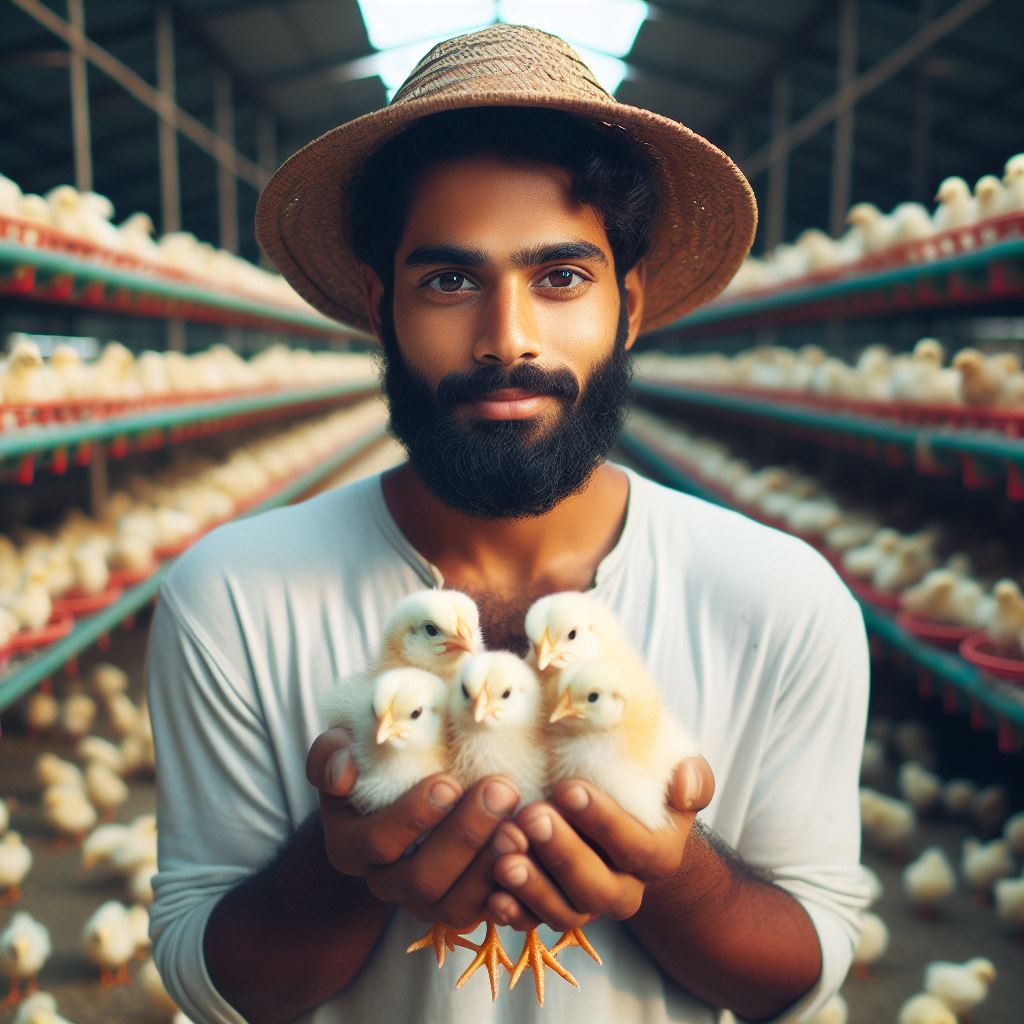
Success Stories
When it comes to sustainable poultry farming practices, there are numerous inspiring stories and case studies that demonstrate the successful implementation of such methods.
Inspiring stories or case studies of poultry farmers who have successfully implemented sustainable practices
These stories highlight the positive outcomes achieved by poultry farmers, both economically and environmentally, and showcase the innovative approaches they have taken.
Farmer John’s Organic Poultry Farm
- Farmer John started his poultry farm with a vision of sustainable and organic practices.
- By implementing natural feed and avoiding antibiotics and hormones, his farm produces healthier chickens.
- With a growing demand for organic poultry products, Farmer John has seen a significant increase in profits.
- His innovative approach also includes using chicken manure as fertilizer for his organic vegetable garden.
- The integration of poultry and vegetable farming has led to a more efficient use of resources.
The Smith Family’s Renewable Energy Solution
- The Smith family developed a unique system that combines poultry farming with renewable energy production.
- They installed solar panels on the roofs of their poultry houses to generate electricity.
- This not only reduces their farm’s carbon footprint but also enables them to sell excess energy back to the grid.
- By diversifying their income sources, the Smith family has achieved financial stability and sustainability.
Innovations at Green Acres Farm
- Green Acres Farm has gained recognition for its innovative approach to sustainable poultry farming.
- They implemented a state-of-the-art water management system that minimizes water usage.
- This system involves collecting rainwater and using advanced filtration techniques for reuse.
- By reducing water consumption, Green Acres Farm has not only cut costs but also minimized its environmental impact.
- The farm’s success has inspired other poultry farmers in the region to adopt similar water management practices.
The Johnsons’ Community-Engaged Farm
- The Johnson family believes in the power of community engagement for sustainable poultry farming.
- They regularly organize educational workshops and farm tours to raise awareness about their practices.
- Through collaboration with local schools, they provide hands-on learning opportunities for students.
- Not only have the Johnsons built strong relationships within their community, but they have also gained loyal customers.
The positive outcomes they have achieved, both economically and environmentally
These success stories demonstrate that sustainable poultry farming practices can lead to remarkable outcomes.
Poultry farmers who prioritize sustainability not only contribute to the protection of the environment but also benefit economically through increased demand and cost savings.
Examples of their innovative approaches
By sharing these stories and learning from their innovative approaches, we can inspire and encourage more farmers to adopt sustainable practices.
Together, we can work towards a more sustainable future for poultry farming.
Read: Poultry Genetics: Raising Superior Chickens
Conclusion
Key points discussed in the blog post
In closing , this blog post has highlighted the key points surrounding sustainable poultry farming practices.
Importance of sustainable poultry farming practices
We have discussed the importance of implementing these practices to protect the environment, ensure animal welfare, and ensure the long-term viability of the poultry industry.
Encouragement for readers to consider implementing sustainable practices in their own poultry operations
It is crucial for readers to consider implementing sustainable practices in their own poultry operations.
By doing so, they can contribute to the overall sustainability of the industry and minimize its negative impact on the environment.
Additional resources or references for further reading on the topic
For those interested in further reading on this topic, we recommend the following resources and references:
- “Sustainable Poultry Farming: Principles and Practices” by John Smith. This book provides a comprehensive overview of sustainable poultry farming techniques.
- The Sustainable Poultry Farming Association website (www.sustainablepoultryfarming.org) offers a wealth of information and resources on sustainable practices in the poultry industry.
- “The Role of Sustainable Poultry Farming in Ensuring Food Security” by Jane Doe. This research paper explores the link between sustainable poultry farming and global food security.
By educating ourselves and implementing sustainable practices, we can all contribute to a more sustainable and responsible poultry industry.
Let’s work together to create a better future for poultry farming and the environment.

